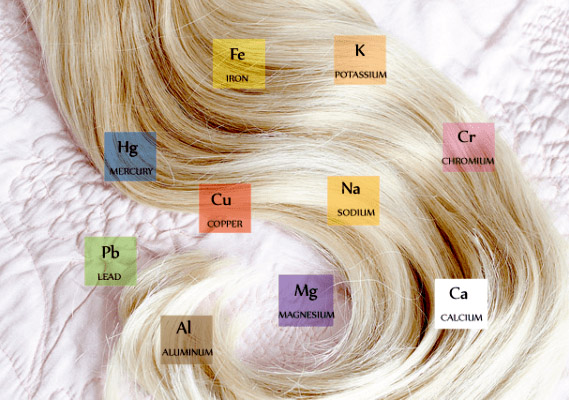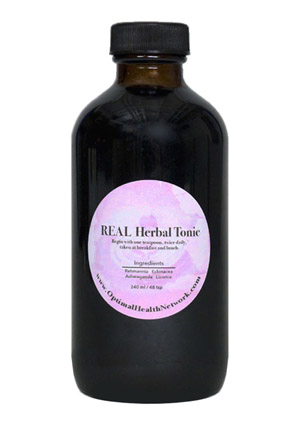How To Get Better Sleep
REM vs. Non-REM Sleep
What's the Best Time to Go to Sleep?
Adrenal Health and Sleep
Hair Tissue Mineral Analysis
Sleep Hygiene
Supplements to Aid Sleep
Introduction
Do you struggle to fall asleep at night, or wake up after a seemingly solid night’s sleep but still feel exhausted? Are you tired of being tired all the time, never feeling really well-rested?
You're not alone. In the modern world, fundamental aspects of our lifestyles — our jobs, family responsibilities, diets, social lives, medications, and electronic devices — can all interfere with our ability to get enough good, quality sleep.
There are a number of small, simple things you can try and habits you may be able to incorporate into your daily life to help you get better sleep. For many of us, altering certain daily habits to help ourselves get more restful sleep starts with a better awareness of our natural sleep cycles.
REM vs. Non-REM Sleep

Research shows that it's not only the total amount of sleep you get that's important, but also the amount of rapid eye movement (REM) sleep versus deeper, non-REM sleep that you get. We all experience both types (phases) of sleep every night, running in natural cycles which usually last around 90 to 110 minutes.
For the most part, non-REM sleep is deep sleep. Your body has no eye movement or muscle activity during this phase, your brain produces very slow brain waves, and it's more difficult to wake up during this phase. This restorative phase of sleep is crucial for the health of your body, because your body builds bone and muscle, repairs tissues, and strengthens the immune system during this phase.
In contrast, the REM phase is lighter sleep accompanied by an increase of brain activity, faster breathing, rapid eye movement, increased heart rate and blood pressure. For many people, vivid dreams occur during this phase.
For most people, the first REM phase occurs approximately an hour and a half after falling asleep, and lasts for about 10 minutes. Each following period of REM sleep gets progressively longer throughout the night, and the non-REM phase decreases in length.
Circadian Rhythms and Restorative Sleep
When you go to sleep can have a significant affect on the relative amounts of these two phases of sleep that you experience, because although the total length of each cycle is fairly stable throughout the night, the ratio of REM to non-REM sleep changes as the night progresses, with REM cycles lengthening toward daybreak for most of us. Understanding this general shift in ratio is vital to help you optimize the restfulness of your sleep habits.

Our circadian rhythms, which regulate our sleeping cycles, our hunger patterns, our energy levels, and more, are the product of hundreds of thousands of years of human evolution, co-evolving with cycles of daylight and darkness. Therefore, if you go to bed earlier (closer to nightfall), you are more likely to get more of the deeper, healing non-REM sleep. (There will be exceptions to this in some individuals, but this practice will be beneficial for most of us.)
Circadian rhythms are physical, mental, and behavioral changes that follow a 24-hour cycle. These natural processes respond primarily to light and dark and affect most living things, including animals, plants, and microbes.
So What's the Best Time to Go to Sleep?
Regarding natural circadian rhythms, in general it's good to listen to your body and go to bed when you start feeling sleepy. Some people are naturally "night owls" or "early birds", and there's not necessarily any point in fighting that, although many night owls may be losing out on adequate non-REM restorative sleep.
As described above, the more sleep you get earlier during non-daylight hours, the better, to achieve as much high-quality, non-REM sleep as you can. (Obviously this is not possible for everyone due to work schedules or other obligations that can't be changed.)
Generally it's best to get at least 7 to 8 hours of sleep if possible, and to wake up around the same time every morning, but more importantly you should pay attention to what your body is telling you, and go to bed as soon as you feel tired, if circumstances allow.

What Interferes with Sleep?
Many things can impact your overall sleep and your REM cycles, including:
- stresses of daily life
- alcohol
- caffeine
- exposure to blue light from phone, computer, and TV screens near bedtime
- medications including pseudoephedrine (used to relieve nasal congestion) and antidepressants
- cigarette smoking
- uncomfortable temperatures
Adrenal Health and Sleep
In a stressful modern world, our sleep quality is often closely tied to our adrenal health and cortisol levels. Poor adrenal health and high cortisol levels can lead to worse sleep, and vice versa.
Your hypothalamic-pituitary-adrenal (HPA) axis plays a role in modulating sleep and in your body's cortisol production and stress response, and the health of your HPA axis can fluctuate with your sleep health. If the HPA axis is overly active, it can disrupt your circadian rhythms, resulting in your body getting less restorative, non-REM sleep. This is why it's crucial to make sure your adrenal health is good when trying to improve sleep.

Hair Tissue Mineral Analysis
If you're having a hard time sleeping, it's a good idea to order a Hair Tissue Mineral Analysis (HTMA) kit to assess your body's heavy metal levels and mineral levels and ratios. Mineral imbalances and toxic levels of metals can contribute to insomnia and difficulty sleeping.
Additionally, this test can provide you with information about your adrenal health, which is a critical part of getting good sleep.
▶︎ Purchase Hair Tissue Mineral Analysis
Sleep Hygiene
Sleep hygiene refers to the habits and environment you have that impact your sleep. Examples of good sleep hygiene include:
- having a comfortable bed
- ensuring your environment is at a comfortable temperature and free of noises or disruptions that could wake you up
- maintaining a stable sleep schedule
- having a consistent and relaxing bedtime routine
- staying off smartphones and TV and computer screens near bedtime
How To Get Better Sleep
Kristina Amelong, CCT, CNC discusses the importance of supplements and good sleep hygiene in order to improve your sleep and get the quality rest you need!
Habits and Routines That Can Help Improve Sleep Quality
- Do not consume caffeine after 12 pm, and limit your caffeine intake overall as much as possible. The same is true with alcohol. While alcohol helps some people fall asleep, it can interrupt sleep later in the night.
- Avoid blue light after sunset, which includes smartphones, TVs, and computers. If avoiding blue light entirely isn't possible, wear blue-light-blocking glasses when using these devices. Blue light suppresses your body's release of melatonin at night, which can disrupt your circadian rhythms and make falling asleep at an appropriate time very difficult.
- Get a minimum of 30 minutes of bright daylight exposure each day to support your regular circadian rhythms.

- Perhaps most important, keep your sleep schedule as consistent as possible, including over the weekend. It's okay to sleep in a bit longer on a weekend morning (30-60 minutes is fine), but significantly altering your sleep schedule disrupts your circadian rhythm. Try to go to bed and wake up at the same time each day.
- If you're the type of person who loves or benefits from routines or rituals, create a pleasant, relaxing bedtime routine for yourself to do nightly. Examples including drinking a cup of herbal tea, taking a warm bath, a skin care routine, stretching, meditation, reading a book, or anything else that relaxes you and makes you feel ready for bed.
- If you live with roommates or family members on different schedules, or in a noisy neighborhood, a white noise machine may help reduce disruptions to your sleep.
- Make sure the room you're sleeping in is dark. Some people benefit from using blackout curtains or a sleep mask to help with this.
Supplements
The following supplements help improve sleep for some people:
- Melatonin can be helpful in regulating sleep cycles in individuals who have irregular sleep patterns. In these cases I recommend a melatonin supplement such as Ortho Melatonin.
- Magnesium is a crucial mineral that helps regulate many of your body's functions, and magnesium deficiency can be very detrimental to getting good sleep. Magnesium also helps with relaxing the body and reducing stress, so it can be beneficial to take a regular magnesium supplement such as Ortho Reacted Magnesium.

- OHN REAL Tonic - This herbal supplement helps regulate your body’s cortisol levels and improves adrenal health, which is important for getting enough good quality sleep, as high cortisol levels can be one cause of insomnia.
- Ortho Molecular 5-HTP increases serotonin levels and supports the body's mood and sleep cycle regulation.
- Glycine is an amino acid that supports the nervous system and promotes restful sleep by acting as a calming neurotransmitter in the brain. You may benefit from taking 1000 mg of glycine in the morning and at bedtime.
- GABA is another amino acid that functions as a neurotransmitter that promotes relaxation. GABA is naturally produced by your body, but low GABA levels can result in lower quality sleep and difficulty falling asleep. NOW GABA or Ortho GABAnol are two excellent supplements to increase your body's GABA levels.
- Ensuring that your body is not deficient in any essential minerals can also help improve your sleep. Ortho Reacted Multimin or Standard Process Min-Tran can help with this. Reacted Multimin provides the body with broad-spectrum mineral support to optimize health. Min-Tran helps reduce stress in the body and contains mineral complexes to support emotional balance
- Valerian root supports nervous system health and promotes relaxation and better sleep. I recommend either Standard Process Valerian Complex or Valerian 1:2.
- Having adequate vitamin C and vitamin B6 levels and getting enough sodium in your diet can also support adrenal health and keep your cortisol response regulated to improve sleep.
Summary
Many aspects of our modern lifestyles — our jobs, family responsibilities, diets, social lives, medications, and electronic devices — can disrupt our ability to get adequate, restful sleep.
For many of us, sleeping better starts with an understanding of our natural sleep cycles and how to maximize the amount of restorative non-REM sleep we get each night. For most people, going to bed earlier in the evening is beneficial in this regard, so that sleep is more closely synchronized with hours of darkness.
While going to be earlier is not possible for everyone due to work schedules or other obligations that can't be changed, there are certain habits and routines that may help you improve your sleep quality, including waking up at about the same time every day, not consuming caffeine after midday, getting at least 30 minutes of bright daylight exposure each day, avoiding blue light exposure (smartphones, TVs, and computer screens) near bedtime, and sleeping in a dark room or with a sleep mask.
Poor sleep often indicates other issues present in the body. Improving other aspects of your health such as your stress load, adrenal function, and mineral balances may be crucial steps to improving sleep.
If you're having difficulty sleeping, consider ordering a home Hair Tissue Mineral Analysis (HTMA) testing kit to check your body's mineral levels and ratios as well as heavy metal levels.
DISCLAIMER: This material is presented for informational purposes only and is not a substitute for medical advice, diagnosis, or prescribing from a licensed healthcare professional. We make no claim or guarantee for cure or relief of any specific symptom, medical condition, or disease when using any of the products or protocols referenced here. Consult with a licensed healthcare professional before altering or discontinuing any current medications, treatment, or care, or starting any diet, exercise, cleansing, or supplementation program, or if you have or suspect you might have a health condition that requires medical attention.
By Kristina Amelong, CCT, CNC
I-ACT-Certified Colon Hydrotherapist
Certified Nutritional Consultant

▶︎ Need more detailed guidance in getting better sleep?
Personal Health Consultations with
Kristina Amelong, CCT, CNC
For personalized support with your home health program, including getting better sleep, I would be happy to assist via a scheduled phone consultation. I charge an affordable $2.25 per minute, for as many or as few minutes as you need!
First complete any relevant sections of my secure online intake form. Upon submitting the form, you will be prompted to schedule a consultation time with me via my online booking system.
If you are an international client who would like to use WhatsApp for your scheduled consultation, please email us for instructions on how to contact me at the time of your consultation.